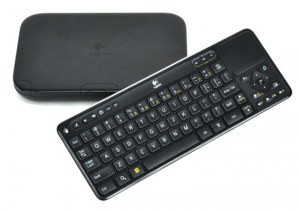
Peripheral and accessory maker Logitech bet heavily on Google TV…and now the crows are coming home to roost. Although the company pulled in $480 million in sales for its first fiscal quarter of 2012—which is basically even with last year—the company posted an net loss of $30 million for the quarter, which includes some $34 million in operating losses due to a price reduction for its Google TV-powered Logitech Revue.
Just to make matters more complicated, Gerald P. Quindlen has stepped down as Logitech’s CEO and resigned from the company’s board of directors. No reason was given for his departure. Logitech has begun a search for a new CEO, but in the meantime company chairman Guerrino de Luca will serve as acting CEO. De Luca served as Logitech’s CEO from 1998 until 2008, when he shifted to the board chairman position.
“I resume my former role as CEO, on an acting basis, with unwavering commitment to Logitech and strong confidence in the company’s future and growth potential,” said de Luca, in a statement. “My priorities will be to pursue our many opportunities with a strong sense of urgency and to renew the confidence in Logitech among all stakeholders.”
Logitech’s sales for the quarter were largely flat compared to a year ago; while the company did see a significant decrease in OEM sales, sales to the EMEA and (particularly) Asia saw strong growth. However, Logitech has taken a bath on the Logitech Revue, a set-top device based on Google’s nascent Google TV platform. Google TV was supposed to be the ultimate combination of the Internet and television, but it turned out to be an awkward mess that was quickly blocked by most online streaming services, vastly reducing the amount of content available to it. Logitech rolled out the Revue at $299 and sold almost none of them; last quarter the company dropped the price to $249. Now, the Logitech Revue is priced at $99.


